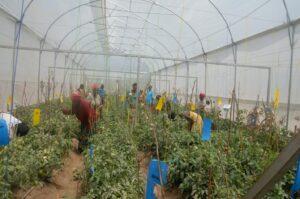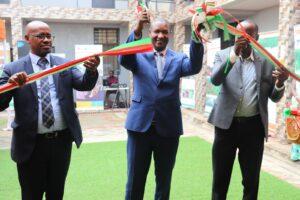As part of the Feminist Climate Action in West Africa (ACF-AO) project, strengthening women’s leadership is an important focus. Why this focus on women’s leadership? What are the benefits for communities and the environment? This article explores the importance of women’s leadership and explains why we offer leadership training to our beneficiaries.
The importance of female leadership
Building community resilience
Women, particularly in rural and indigenous communities, play a crucial role in natural resource management and household livelihoods. By strengthening their leadership, we increase their ability to make informed decisions and implement climate change adaptation and mitigation strategies. Their active participation and leadership enable us to design more inclusive and sustainable solutions.
Promoting ecological and social justice
Women are often the most affected by the impacts of climate change because of their social and economic roles. By offering them leadership opportunities, we help to reduce gender inequalities and promote ecological justice. Their voices and perspectives are essential for equitable resource governance and inclusive decision-making.
Accelerating the adoption of sustainable practices
Women leaders can inspire and mobilize their communities to adopt sustainable practices. Their positive influence encourages the implementation of agroecological practices, biodiversity protection and energy diversification. As leaders, they can also play a crucial role in environmental education and raising awareness of climate issues.
Leadership training as part of the ACF-AO project

© INADES-Formation/ Djimby Sow
From May 13 to 24, 2024, leadership training was given to women from the communities of Grand-Bassam, Jacqueville, Grand-Lahou and Adiaké. The aim of these training sessions is to:
– Develop leadership skills.
– Actively participate in decision-making body meetings.
– Manage group dynamics effectively.
– Speak easily in public and defend their point of view.
Testimonials
MELLEKOU Lucienne, Vitré 1: “I learned a lot from this leadership training. From now on, I’ll be able to put what I’ve learned into practice and pass on this knowledge to my sisters, mothers and aunts in the village, so that we can all be independent.”
TANOH Marie-France, Eplemlan: “During the training, I learned that women have their say and that in an assembly they have the right to speak up and say what they think. Men and women have the same rights. I also learned that a leader is the person who leads his group, the one who sets a good example to follow and the one who must motivate his group for a better tomorrow”.
Building a fair and ecological future
Women’s leadership is essential to meeting the challenges of climate change and promoting equitable and sustainable governance of natural resources. By offering leadership training to our beneficiaries, the ACF-AO project is committed to empowering women, promoting ecological justice and accelerating the adoption of sustainable practices. Together, we can build resilient and inclusive communities, ready to face tomorrow’s environmental challenges.
INADES-Formation Secrétariat Général- Service communication











